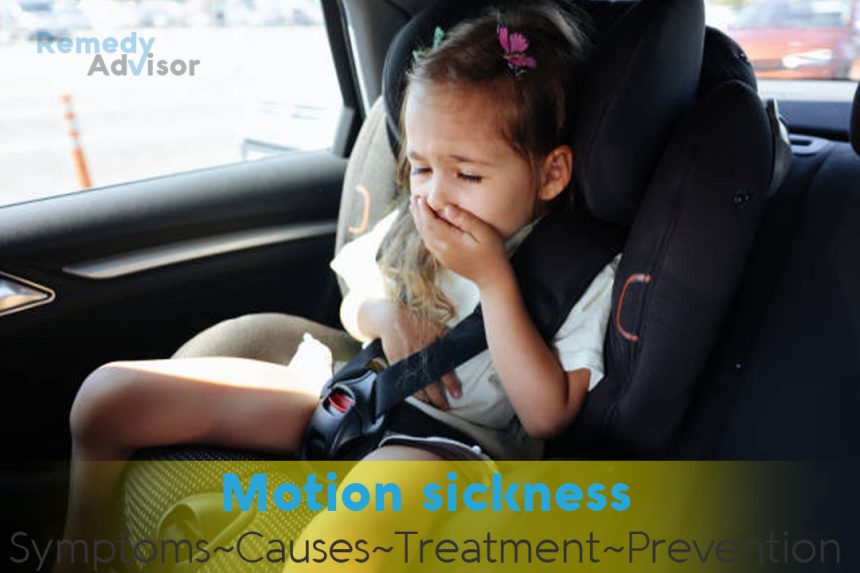What is it
Motion sickness is a loss of equilibrium that occurs when people travel in a car, bus, boat, train, airplane, or amusement park ride. The problem is common among children between the ages of 2 and 12. Though adults can also get motion sickness, their more mature nervous systems are better able to deal with the effects of movement. Some children are especially susceptible, so that they usually become motion sick each time they travel in a vehicle.
Symptoms
- Paleness.
- Perspiration.
- Pallor.
- Nausea and vomiting.
- Dizziness.
- Spinning sensation.
- Loss of appetite.
What causes it
The problem resides in the inner ear, which has fluid moving in its semicircular canals to monitor the directions of motion. Certain movements stimulate these fluids, while at the same time the eyes are focused on rapidly moving scenery. The brain receives messages from nerves affected by this imbalance, and in turn the brain sends a message to the stomach, resulting in nausea and possibly vomiting.
What if you do nothing
While motion sickness isn’t usually a health problem, it is often uncomfortable and can interfere with a trip. If you (or a child) are susceptible, the likelihood of motion sickness during travel is high. So it’s best to focus on preventing symptoms before you set out.
Home remedies
Take care of the nausea
Lie down in a dark room with a cool cloth over your forehead and eyes. Have a pan handy in case you vomit.
Replace fluids
If you have vomited, you want to avoid becoming dehydrated. Take sips of clear fluids until your stomach settles down.
Prevention
Motion sickness is easier to prevent than to treat once it has begun.
Start with medication
If you always suffer from motion sickness, the best plan is to try medication. Some over-the-counter antihistamines (such as Bonine, Marezine, Dramamine, and Benadryl) have been approved by the Food and Drug Administration (FDA) for motion sick- ness. Start taking your chosen drug 30 to 60 minutes before you leave. Remember that each of these drugs may cause drowsiness.
Be vigilant concerning food and drink
Eat something before your trip, but not a lot. Fruit juice and toast may be all you need. Avoid eating heavy meals and drinking alcohol before traveling.
Sharpen your focus
In a boat or in a car, be sure to focus on the horizon or some other fixed point in the distance, in a plane, sit by a window and look outside. This way your eyes will see the same motion that your body and inner ears feel.
Choose your spot wisely
In a car, be sure to have a seat that gives you a clear view of the road ahead; do not sit in a seat facing backward. In a plane, choose a window seat over the wings, where you will experience the least motion. At sea, stay amidships and topside.
Avoid strong odors from food, tobacco, or perfume
Such smells can induce or increase nausea.
Choose amusement park rides carefully
Avoid rides that spin.
Don’t read
Trying to focus on the page or on the screen of a laptop computer while your inner ear is jiggling may be enough to trigger motion sickness.







